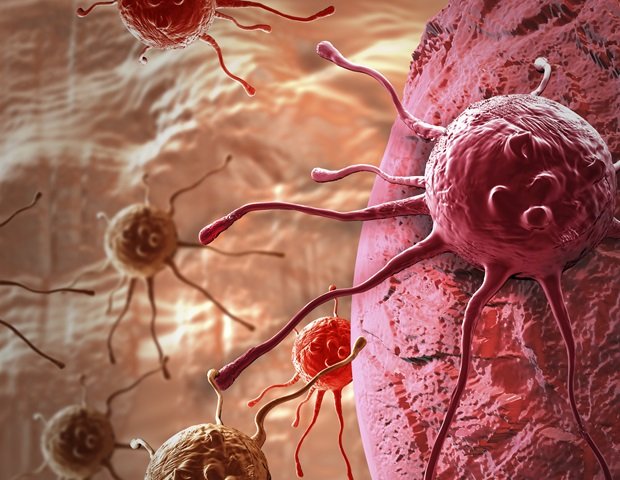Prostate cancer disrupts the prostate’s normal growth regulatory program to release the brakes and grow freely, according to Weill Cornell Medicine researchers. The discovery, published Dec. 13 in Nature Communications, paves the way for new diagnostic tests to guide treatment and could also help drug developers identify new ways to stop the disease.
A protein called the androgen receptor normally works to guide the growth of the prostate—signaling the cells to stop growing, function as normal prostate cells, and maintain a healthy state. The receptor is activated by androgens or sex hormones such as testosterone, which activates the receptor to bind to DNA, causing the expression of some genes and the repression of others. But in cancer, the androgen receptor is reprogrammed to tell cells to keep growing, driving tumor growth.
It is well known in the field that the androgen receptor is hijacked in a number of ways and begins to take on new functions to drive the growth of prostate cancer cells.”
Dr. Christopher Barbieri, senior author, Peter M. Sacerdote Distinguished Associate Professor in Urologic Oncology, associate professor of urology and member of the Sandra and Edward Meyer Cancer Center at Weill Cornell Medicine
This study showed that androgen receptors in prostate cells can act either as an accelerator that accelerates cell growth or as a brake that inhibits it. The tumors redirect normal receptor activity to press the accelerator and release the brake.
Uncovering genes that stop cell growth
Much of the research into prostate cancer has focused on how the androgen receptor activates genes that promote cell growth. However, Dr. Barbieri’s team noticed that the protein also loses functions, binding less to some of its normal DNA sites. The researchers hypothesized that these normal binding sites may suppress cell growth, so when the androgen receptor leaves them, tumor cells can proliferate uncontrollably.
To test this, co-first author Dr. Michael Augello, who was a postdoctoral fellow at the time of the study, created a group of artificial proteins, each containing an androgen receptor DNA-binding segment and an activation or repression module. . “This approach allowed us to examine the genes involved in the program of normal cells that remain integrated but were hijacked in cancer cells,” said co-first author Dr. Xuanrong Chen, postdoctoral fellow in urology at Weill Cornell Medicine.
Using these artificial transcription factors, the team then looked at all the androgen receptor binding sites in cultured cells, charting what each site did in normal and cancer cells. This experiment revealed a family of genes that can stop the growth of prostate cancer cells.
“When we turn on the genes that are controlled by these androgen receptor regulatory elements, the growth of the cell stops,” Dr. Barbieri said. In contrast, activating the same genes in healthy prostate cells had no effect. “It really suggests that these elements are there for normal cells to differentiate and be happy, and cancer needs to rewire them to grow,” said Dr. Barbieri, who is also a urologist at NewYork-Presbyterian/Weill Cornell Medical. Center.
The findings may lead to new diagnostics
Based on their initial results, the researchers examined tissue samples from prostate cancer patients. “We found that the more tumors express the androgen receptor program of normal cells, the better the patient’s prognosis, the better their response to treatments, and the better the patient’s outcome,” Dr. Barbieri said. His lab is already developing diagnostic tests based on these results, which could be used to tailor patients’ treatment regimens.
“The findings also open the possibility of developing a therapeutic that reactivates the normal regulatory program in prostate cancer cells to limit their growth,” said Dr. Chen.
Source:
Journal Reference:
Chen, X., et al. (2024). Normal patterns of androgen response elements are tumor suppressor regulatory elements in the prostate. Nature communications. doi.org/10.1038/s41467-024-53734-z.
